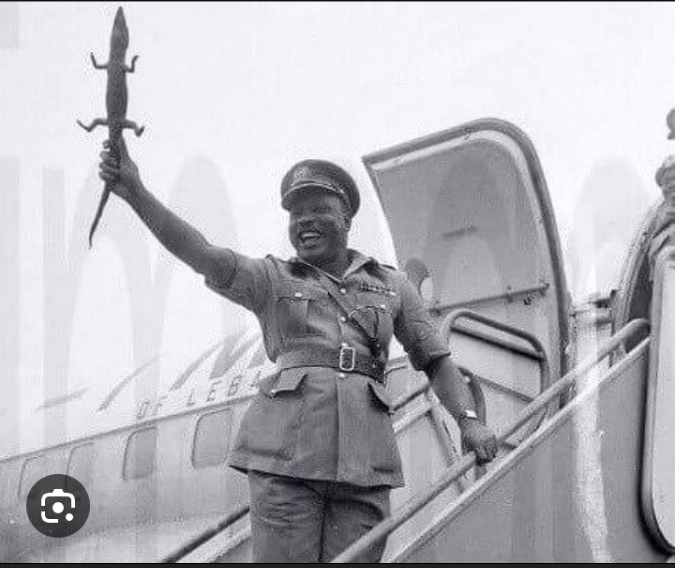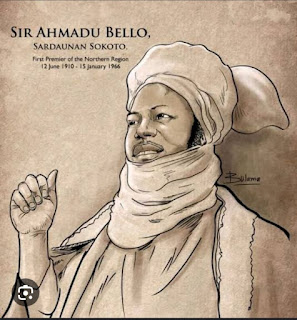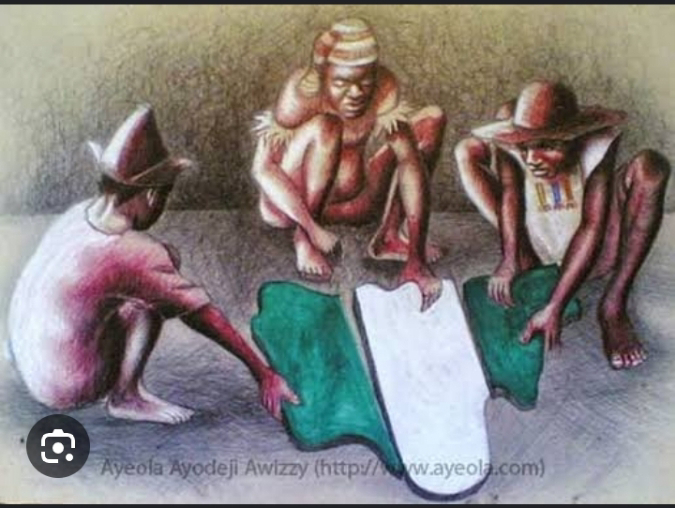The John Aguiyi Ironsi Regime: Military Rule In Nigeria
Biography
Johnson Thomas Umunnakwe Aguiyi Ironsi (3 March 1924-29 July 1966) was a Nigerian military officer who was the first military head of state of Nigeria. He assumed power during the ensuing chaos of the 15th January 1966 coup which effectively ended the first republic.
He ruled from 16th January 1966 until his assassination by a group of northern soldiers led by Murtala Mohammed and included Captain Theophilus Danjuma, Lieutenant Sani Abacha, Lieutenant Muhammadu Buhari and Lieutenant Ibrahim Babangida. Among these men only one failed to rule Nigeria during the military era, the revolt they led against ironsi's government is known as the July counter coup or the January rematch.
Ironsi's six months in government was characterized by intense scrutiny from northerners, apart from the fact that Igbo victims in the January 15th coup was basically non-existent which drove the suspicion of northerners, the arrowhead of the January coup Major Nzeogwu and his colleagues who were probably seen as villains by northerners we are not dealt with in the way and manner that will have placated the anger of many northerners. That the coup planners who decimated the ranks of civil and military leadership of the North still drew their salaries and were seen as heroes by many Igbo as well as the "royal treatment" Nzeogwu was accorded in prison exacerbated northern anger. Azikwe argued that Ironsi's is failure to court-martial the "January majors" brought upon the downfall of his regime.
Administration
It was in this rather unfavorable situation described above that the Ironsi regime declared Decree 34 on 24th May 1996. The decree abolished Federalism and replaced it with Unitarism. According to Ironsi since the federal system encouraged ethnic chauvinism Decree 34 was intended to "remove the last vistages of intense regionalism of the recent past, and to produce that cohession in the governmental structure which is so necessary in achieving and maintaining national unity". On the other hand however many northerners saw the decree as an attempt by the Igbo to "rob" off whatever benefits the north still derived from the Nigerian federalism.
It will be recalled that among many other things Decree 34 provided for a national (unified) civil service and the abolition of regional civil service. Thus, one implication of the decree would be that the educationally backward north will have to compete with better-educated southerners for appointment into the civil service. Yet the north was very conscious of its educational shortcomings vis-a-vis the south. Indeed this formed the basis of northern fear for southern domination. Alhaji Balewa once said "... Man at times is by nature suspicious and it is therefore natural for people of the north ... to fear domination ... There are 46,000 men and women in the Federal Service (1958) I have not been able to obtain the figure of northerners in the service but I very much doubt it will amount to 1%. This will continue to be a cause of disaffection and friction".
One could imagine what the reaction of the north is likely to be, of any arrangement or policy that could put northerners in a disadvantaged position as far as civil service appointments were concerned. This coupled with the announcement in May 1960 that Ironsi was going to be in power for three years may have led some northern leaders to the conclusion that the continued survival and existence of Northern Nigeria depended on an immediate termination of Ironsi's regime.
Coup/Death
On 29th July 1966, Aguiyi Ironsi spent the night at the government house in Ibadan as part of a nationwide tour. His first lieutenant Adekunle Fajuyi Military governor of Western Nigeria alerted him of possible mutiny within the army. Ironsi desperately tried in vain to contact his Chief of Staff Yakubu Gowon who was unreachable. In the early hours of the morning, the Government House Ibadan was surrounded by soldiers led by Theophilus Danjuma.
Danjuma arrested Ironsi and questioned him about his alleged involvement in the coup which saw the death of northern leaders but he denied any involvement. Ironsi and Fajuyi were both driven to a bush where they were beaten mercilessly and then shot, Ironsi's death was not announced officially until six months later.



Comments
Post a Comment